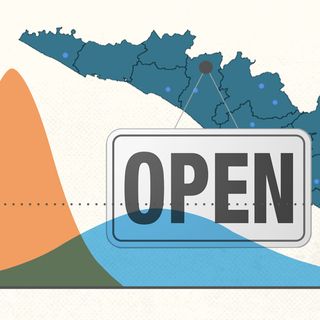In the next few months, the number of people suffering from hunger could escalate from 135 million to 250 million as a result of the Covid19 pandemic, the United Nation’s World Food Programme (WFP) warned. Predicting a widespread global famine, UN WFP’s fourth annual Global Report on Food Crises estimated 10 countries — already struggling with economic crises, climate change, and conflict — to be the worst affected in the near future, including Yemen, the Democratic Republic of the Congo, Afghanistan, Venezuela, Ethiopia, South Sudan, Sudan, Syria, Nigeria, and Haiti.
Calling for immediate action, WFP head David Beasley said in a video conference, “The truth is we do not have time on our side.” He added that the world is heading for the biggest humanitarian catastrophe since the Second World War. 30 million people could die in the coming months as a result of food shortage if the UN doesn’t ensure availability of more food, he told the BBC. “One way or another, the world will pay for this.”
Beasley’s blunt, jarring warning comes in light of world populations reeling from the Covid19 health and economic crises, especially those that need to earn a steady wage in order to feed themselves and their families. Many at-risk populations listed by the WFP report were already “hanging by a thread” before the coronavirus pandemic, WFP economist Arif Husain said in a statement. Global recessions spurred by worldwide lockdowns have depleted people’s minimal savings, Hussain said, adding that it could only take one more shock to push these people over the edge into debilitating food insecurity.
Related on The Swaddle:
Menstruation Is a Negotiation With Survival For Many Women
India, too, faces one of the highest levels of undernourishment and food insecurity, according to the Observer Research Foundation. Children — especially those between three and six years old and from marginalized communities — are dependent upon anganwadi centers for their nutritional needs. Such facilities have been stalled during lockdown, ORF states. Reports show that daily wage laborers are not receiving promised aid from the government, which is throwing them deeper into poverty, without an end in sight.
“The pandemic may well devastate livelihoods and food security, especially in fragile contexts and particularly for the most vulnerable people working in the informal agricultural and nonagricultural sectors. A global recession will majorly disrupt food supply chains,” the report stated. “These countries may face an excruciating trade-off between saving lives or livelihoods or, in a worst-case scenario, saving people from the coronavirus to have them die from hunger.”
A decrease in food imports and oil exports due to the falling prices could wreak havoc on economies that rely on this mechanism to ensure food security, the report explained. “Rising unemployment and under-employment and decreasing purchasing power will have serious consequences for poor and vulnerable populations … Displaced people living in camps and displaced/host populations in urban settings, as well as the elderly, young children, pregnant and lactating women, and the disabled, are particularly vulnerable to the far-reaching impacts of this disease,” it added.




